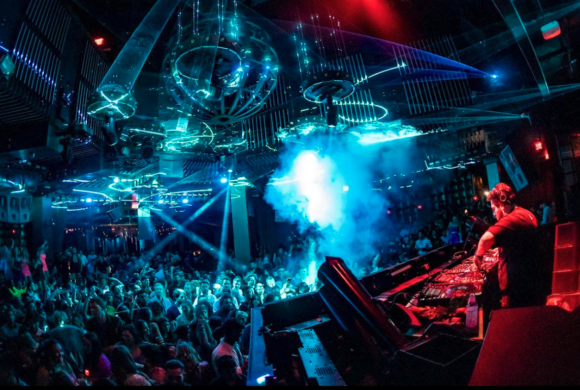Bouncers at the Marquee Nightclub in Las Vegas assaulted David Moradi and thew him out of the club after he ran up a $10,000 bar bill and got into an argument with a waitress about his credit card.
Big mistake. Moradi was the manager of successful hedge fund who was earning $11 million a year. He filed a lawsuit against the owner of the Marquee, Roofdeck Entertainment, and the Cosmopolitan Hotel & Casino, which housed the nightclub. He alleged the April 2012 beating left him with permanent brain damage and forced him to close the fund.
St. Paul Fire & Marine Insurance Co. says Marquee’s insurers also made a big mistake when they declined Moradi’s early offer to settle the matter for $1.5 million. The case went to trial and a jury awarded Moradi $160,500,000 in compensatory damages.
St. Paul, which sold an excess insurance policy to the Cosmopolitan, and other insurers reached a confidential settlement with Moradi. St. Paul then filed a subrogation lawsuit against the Marquee’s insurers, Aspen Specialty Insurance Co. and National Union Fire Insurance Co. of Pittsburgh, saying they had acted in bad faith by rejecting a reasonable settlement demand.
The Nevada Supreme Court on Thursday affirmed a Clark County District Court ruling that dismissed St. Paul’s lawsuit. In a 4-2 opinion, the high court said the Marquee’s insurers owed no duty to St. Paul because they had paid out their full policy limits and the Cosmopolitan had not been damaged.
The majority said the high court had previously suggested that “equitable contribution” claims may be made between insurers, but St. Paul was asking for too much.
“Here, National Union and St. Paul undisputedly contributed their full policy limits to the settlement of the patron’s lawsuit,” the opinion says. “St. Paul’s contribution claim would effectively permit it to recover full reimbursement from National Union. However, contribution operates on the principle that the parties share equal obligation to pay the loss.”
While the amount of the the settlement is confidential, the pleadings show that Cosmopolitan and Marquee had $52 million in coverage available; $2 million from a policy issued by Aspen that insured both the nightclub and the hotel, a $25 million excess policy from St. Paul to insure the hotel, and a $25 million excess policy written by American International Group insuring the nightclub.
St. Paul argued that it would not have had to contribute anything at all if Aspen and AIG had agreed to the original $1.5 million settlement offer made in December 2015.
According to the complaint, before the case went to trial, Aspen and AIG were aware of evidence that supported Moradi’s assertion that the nightclub was liable for his injury, as well as allegations that Marquee had concealed or destroyed evidence relating to the incident. Defense attorneys told the insurers that based on Moradi’s income, the exposure for compensatory damages could be as much as $4 billion, the lawsuit says. Nevertheless, in 2017 Aspen and AIG rejected Moradi’s pre-trial offer to settle the case for $26 million.
St. Paul agreed to chip in for a post-trial settlement after the jury returned its verdict.
The Supreme Court majority, however, found that there was no right to subrogation because Cosmopolitan did not suffer any damages.
Justices Elissa F. Cadish and Lidia S. Stiglish joined in a dissenting opinion. Cadish said based on the facts of the case, she would have ruled that a right of subrogation exists between “equal-level insurers,” such as St. Paul and National Union.
“I cannot agree that Cosmopolitan suffered no damages by virtue of the insurers’ exhaustion of their policy limits, as such a conclusion misapplies a fundamental presupposition of subrogation that the subrogee insurer’s payment reflects the subrogor insured’s loss,” Cadish wrote.
Justice Abbi Silver retired before the decision was released.
Top photo: The interior of the Marquee Nightclub in Las Vegas is shown. Photo courtesy of the Marquee.
Was this article valuable?
Here are more articles you may enjoy.


 Hackers Hit Sensitive Targets in 37 Nations in Spying Plot
Hackers Hit Sensitive Targets in 37 Nations in Spying Plot  LA County Told to Pause $4B in Abuse Payouts as DA Probes Fraud Claims
LA County Told to Pause $4B in Abuse Payouts as DA Probes Fraud Claims  Cape Cod Faces Highest Snow Risk as New Coastal Storm Forms
Cape Cod Faces Highest Snow Risk as New Coastal Storm Forms  Navigators Can’t Parse ‘Additional Insured’ Policy Wording in Georgia Explosion Case
Navigators Can’t Parse ‘Additional Insured’ Policy Wording in Georgia Explosion Case 